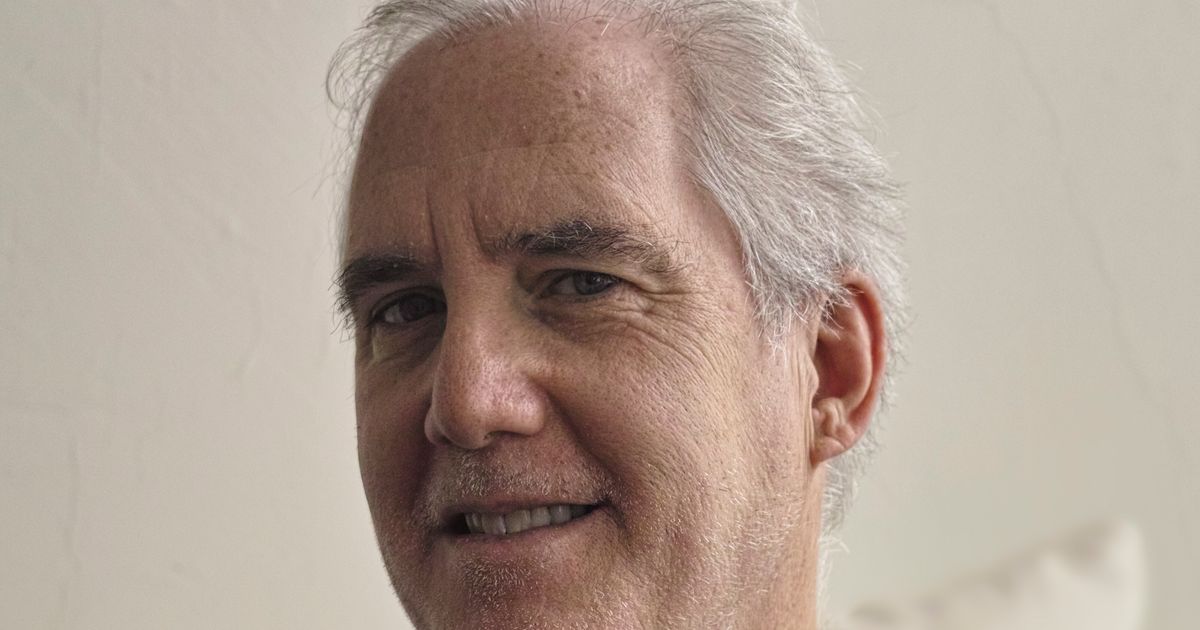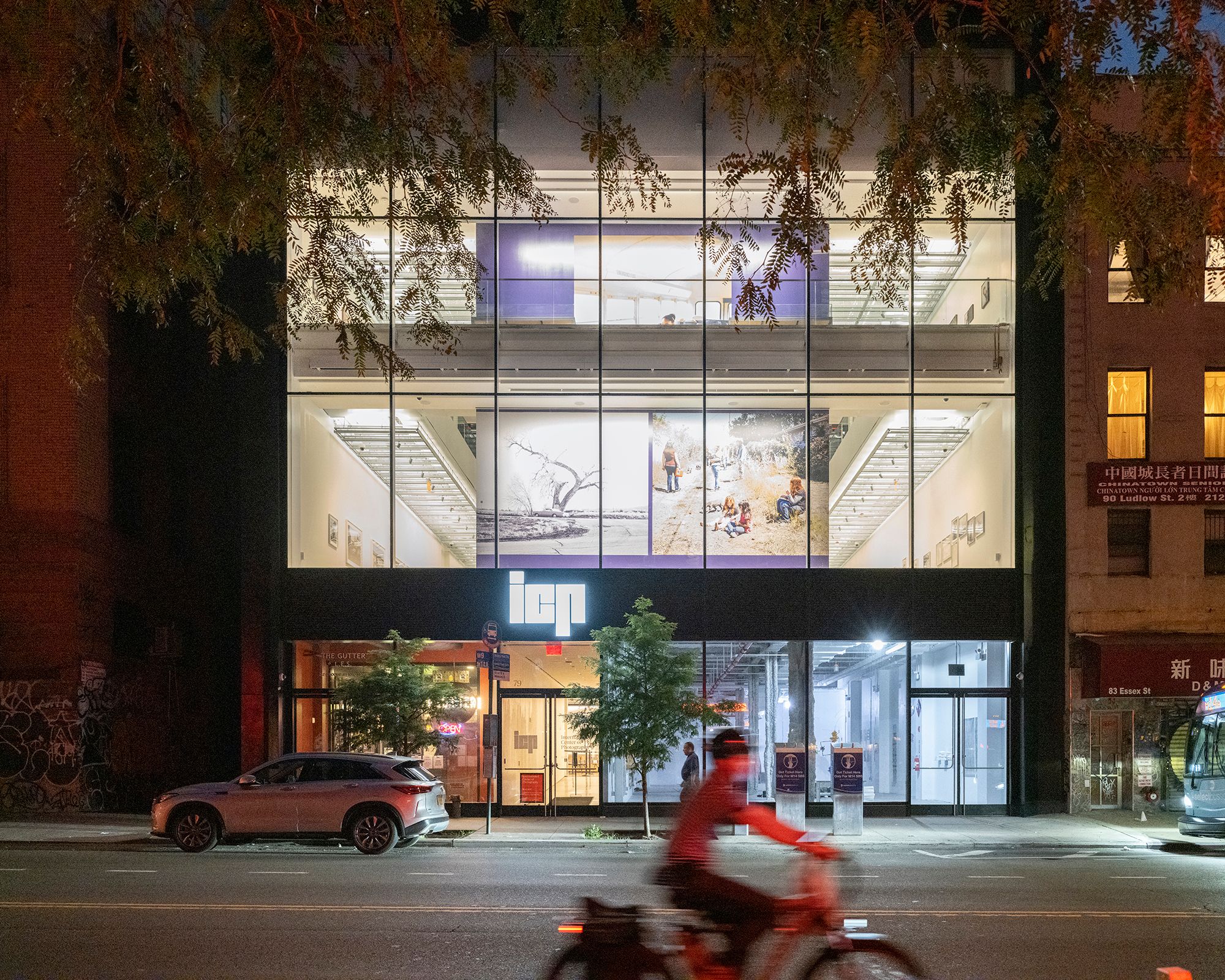
The International Center of Photography (ICP) in New York has appointed a new executive director: David E. Little, who has served for six years as director and chief curator of the Mead Art Museum at Amherst College in Massachusetts. He succeeds Mark Lubell, who has led ICP since 2013.
Little, 58, who takes over in mid-September, has worn a variety of hats in the museum world: in addition to leading the Mead, where he strengthened the museum’s contemporary art holdings and increased the endowment by a third to $9m, he has served as curator and department head of photography and new media at the Minneapolis Institute of Art, associate director and head of education at the Whitney Museum of American Art, and director of adult and academic programmes at the Museum of Modern Art (MoMA). Such experience will no doubt figure significantly into how he oversees ICP’s popular photography school and its community outreach.
Amid fanfare in January 2020, ICP reunited its exhibition spaces and its school for the first time in 20 years in a new $60m building on Manhattan’s Lower East Side, its fourth home to date. Two months later the Covid-19 pandemic struck, forcing the institution to shut down the galleries and move the school online. Although the exhibition spaces reopened last October on a shortened four-day schedule, with visitors requiring masks and entering with timed tickets, class instruction for now remains virtual.
Enrolment at the school, which has long offered photography education ranging from introductory courses and workshops to one-year certificate programmes and master of fine arts degrees (the last option is currently on hiatus), plunged from an annual average of 3,500 students to around 1,700 during the pandemic. Next month the centre hopes to resume in-person classes while maintaining an expansive online option, and it will extend its gallery hours to six days a week in what it casts as a relaunch of its Lower East Side home.
At the same time, officials are mindful of the possibility of a resurgence of Covid cases, Jeffrey Rosen, the president of ICP’s board, said in an interview: “I don’t think anyone knows how to handicap the Delta variant.”
Rosen says that over a five-month search process, Little emerged as the candidate with the optimal blend of experience for the director’s job, from fund-raising to exhibitions to education and public programmes. “David understood how they interact with each other, how they compete with each other, and how you manage that to create the great possible impact,” he says.
Rosen also praised Little’s commitment to diversity and inclusion in hiring, programming and the recruitment of trustees. He had “a five-year vision” for ICP, he adds, “and a two-to-three-year plan to get things going that was very persuasive.”

Like museums across the US, ICP experienced significant revenue losses during its shutdown, and its operating budget has declined from $17m before the pandemic to $14m in the current fiscal year. Still, Rosen says the centre is now breaking even and hopes to build on that with Little’s “proven ability as a fund-raiser”. In Minneapolis, he raised money for the new media and photography department, digitised the photography collection to make it accessible on the museum’s website, and broadened the collection by bringing in works by such artists as Luc Delahaye, David Goldblatt, Nan Goldin and Gordon Parks. At the Whitney, he secured grants for engaging the community and introduced an “open studio” format for education that recruited artists to help mould programming and the visitor experience. For MoMA, he introduced a series of courses for “lifelong learners” in tandem with the museum’s 2004 expansion.
ICP, founded in 1974 by Cornell Capa to champion socially and politically oriented “concerned photography” in a belief that it could change the world, is known for groundbreaking exhibitions that ruminate on race, gender, human rights and the power of the image to bear witness to upheaval and injustice. Next month it will open a trio of exhibitions featuring Diana Markosian’s exploration of the immigrant experience in the US, Gillian Laub’s documentation of her family’s dramas and the work of five emerging photographers experimenting with aspects of their interior lives.
In an interview, Little said he was drawn to the centre’s mission. “One of the wonderful things about ICP is that it has this rich tradition of doing exhibitions that are very much about what is happening today,” he says. “What we will always be thinking about is, how are we helping to understand and define ‘concerned photography’ as it shifts and changes during our time and moving forward?” Post-Covid, he notes, “museums are really in that situation of having to relaunch their programmes and identities.”
Little says he is also eager to capitalise on the ways in which digital photography and social media and other platforms have exponentially expanded image-making and opportunities to reach a global public. He hopes to work with curators inside and outside the institution to incorporate multiple international voices and wants to broaden the centre’s involvement with the local community.
The incoming director has a deep connection to the Lower East Side, having written his 2001 doctoral dissertation on the irreverent local artists’ collective Collaborative Projects Inc., or Colab. Rooted in the then-gritty neighbourhood from the late 1970s to early ‘80s, it organised group exhibitions in the city and presented cable TV shows infused with a “by and for artists” ethos.
During his research, “I was spending a lot of time on the Lower East Side,” Little says. “Kiki Smith was on Ludlow [Street], and Jenny Holzer was on Eldridge. I mean, the whole group was sort of there.”
Now the neighbourhood is reckoning with the impact of three decades of gentrification. As the cultural anchor of the sprawling multi-use Essex Crossing development, ICP hopes to benefit from the area’s vitality while soldering relationships with residents of diverse backgrounds.
“If it is difficult to understate the challenges of the last 18 months, it is hard to overstate our optimism for the future of ICP,” says Caryl Englander, the centre’s board chair, in a statement, adding, “We are so looking forward to working with David to further develop our roots in our new Lower East Side neighbourhood.”
Source link : https://www.theartnewspaper.com/news/regrouping-after-pandemic-shuttered-its-new-home-international-center-of-photography-in-new-york-names-its-next-director












